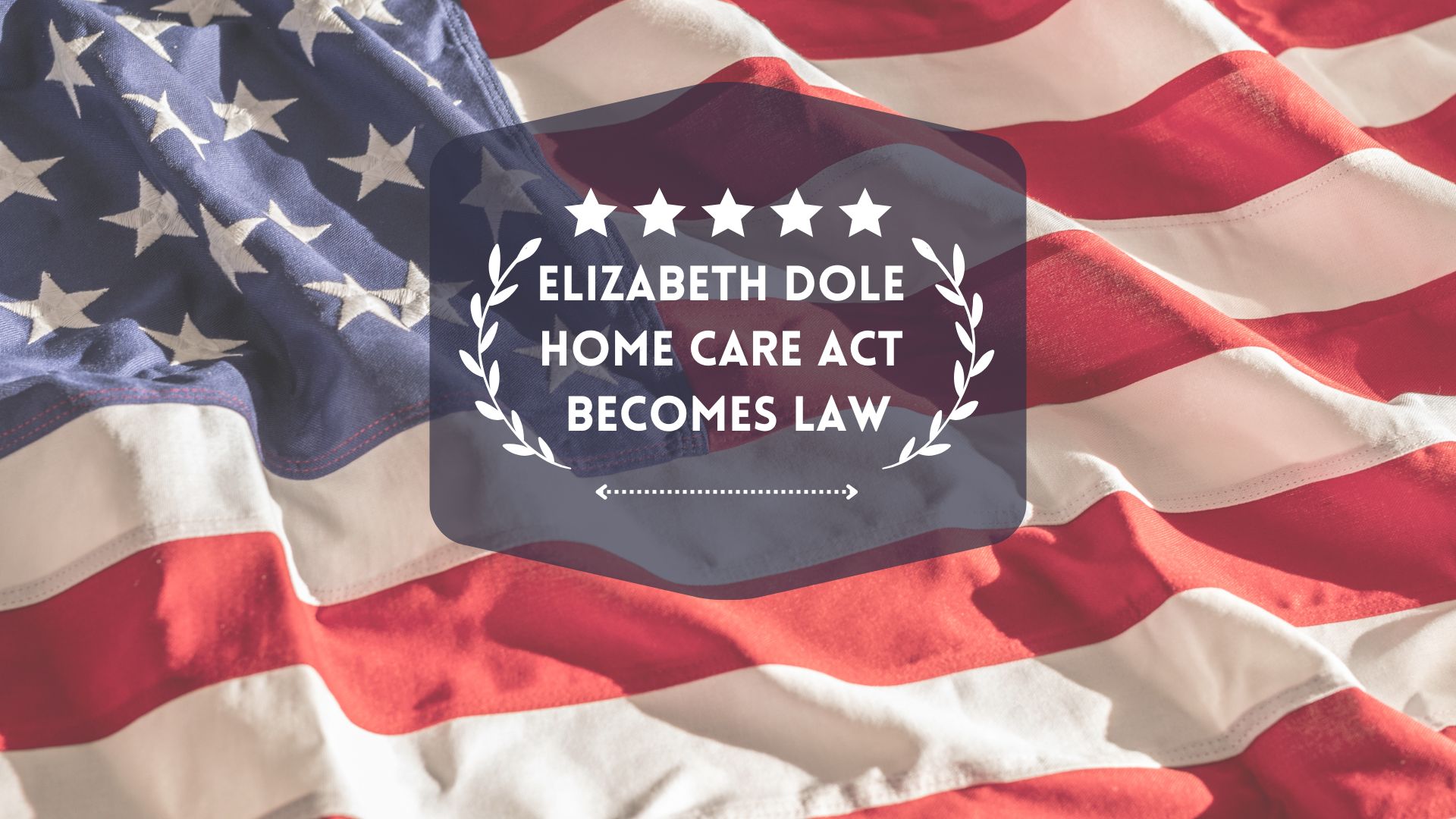Veterans Who Qualify for Care in a Nursing Home May Now Receive the Same Care in the Comfort of Their Own Home
The Elizabeth Dole Home Care Act (H.R. 542 and S. 141) became law with former President Biden signing the legislation to enact the law to deliver more home health care benefits to qualifying veterans on January 2, 2025. California Representative Julia Brownley, Democrat of California’s 26th District, championed this bi-partisan legislation with 54 co-sponsors, both Republican and Democrats who supported this veteran’s home care legislation. The House of Representatives, after 3 years, finally voted on the legislation, passing the Elizabeth Dole Home Care Act with 414 Representatives voting “yea” and only 5 Representatives voting “no”. The Senate then passed the legislation unanimously in December.
Elizabeth Dole created a foundation that supports veteran’s care needs and realized that the same money which pays to support veteran’s in a nursing home could be switched to be used for health care in the home instead. Many veteran’s prefer to remain in their home as they cope with illnesses, disabilities and aging. Now, with a medical doctor’s order, just as it is required for nursing home care benefits, a qualifying veteran may receive the same care as a nursing home provides in the comfort of their own home.
Now aging and disabled veterans may receive what is called “home and community-based nursing care”, provided by a licensed home health care agency which provides trained nurses, caregivers and additional professional staff such as Occupational Therapists, Speech Therapists and Physical Therapists.
The Elizabeth Dole Home Care Act will cover the costs of the care at 100%, allowing veterans to live out their final days at home, if they choose to do so.
This could be the first step in paving the way for Medicare to also provide for more care in the home for America’s seniors and not just in nursing homes. Right now, Medicare pays for up to 100 days in a nursing home after a major medical event for around-the-clock care. Why couldn’t this same benefit be provided in a senior’s home through caregiving services provided by licensed home care agencies? Licensed home care agencies actively manage the caregiver and the care and pay for all employee benefits and taxes.
However, Veteran’s are now able to lead the way in showing the benefits of receiving home health care at home, instead of a in a nursing home.
The Elizabeth Dole Foundation worked with a coalition of organizations to advance this bi-partisan legislation that will deliver at-home care to make it easier for not only veteran’s needing care, but their families and caregivers.
Seniors may age-in-place in the home now by taking advantage of senior home care agency’s services and you can learn more and even find caregiver training that agencies enroll their caregivers into as this enables them to deliver high quality and safe home care services. Caregiverlist provides resources for seniors and caregivers to learn about care options and costs.
Here is a summary of the legislation which will include a pilot program to deliver caregiving services in low-population areas.
Elizabeth Dole Home- and Community-Based Services for Veterans and Caregivers Act of 2023 or the Elizabeth Dole Home Care Act of 2023
This bill addresses home care and caregiver programs provided by the Department of Veterans Affairs (VA).
Under the bill, the cost of providing noninstitutional alternatives to nursing home care generally may not exceed 100% of the cost that would have been incurred if a veteran had been furnished VA nursing home care. (Under current law, these expenditures are limited to 65% of the cost.) However, for specified veterans, the VA may exceed 100% of the cost if it determines the higher cost is in the best interest of such veterans (i.e., veterans with amyotrophic lateral sclerosis, a spinal cord injury, or a condition the Secretary determines to be similar to such conditions).
Among other requirements, the VA must
- seek to enter into an agreement with the Program of All-Inclusive Care for the Elderly in certain areas to furnish noninstitutional alternatives to nursing home care;
- implement various programs (e.g., the Veteran Directed Care program) to expand access to home- and community-based services;
- provide specified support and benefits to caregivers of certain disabled veterans;
- implement a pilot program to provide homemaker and home health aide services to veterans who reside in communities with a shortage of home health aides; and
- ensure the availability of home and community-based services for Native American veterans.
For veterans or family caregivers who are discharged from the Program of Comprehensive Assistance for Family Caregivers, a caregiver support coordinator must provide for a personalized transition to an appropriate program.
The Veterans Health Administration must review programs administered through the Office of Geriatric and Extended Care to ensure consistency in program management, eliminate service gaps at the medical center level, and ensure the availability of and access to home and community-based services.
The bill also extends certain loan fee rates through February 4, 2032, under the VA’s home loan program.







